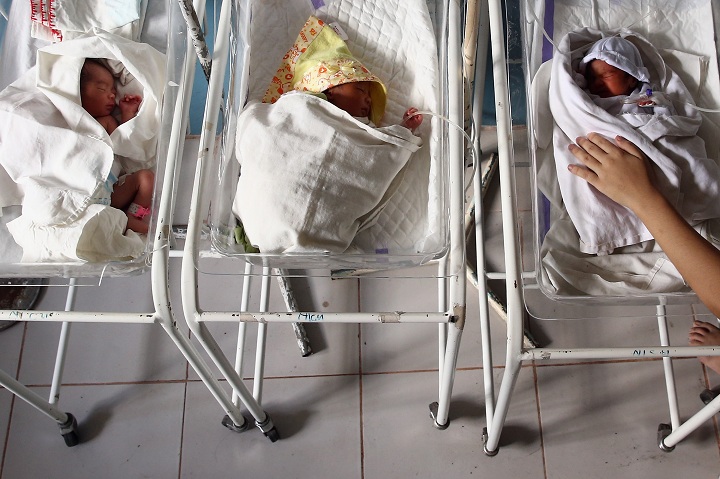Is your baby, child or teenager getting enough sleep? In new research, the American scientists doled out recommendations for sleep based on age and life stage.

The recommendations range from up to 16 hours daily for babies to at least eight hours for teens. They come from a panel of experts and give parents fresh ammunition for when kids blame them for strict bedtimes.
The guidelines released Monday are the first-ever for children from the American Academy of Sleep Medicine. They encompass recommendations the American Academy of Pediatrics has made at different times for different ages.
READ MORE: 8 reasons why you should aim for 8 hours of sleep
The recommendations are based on a review of scientific evidence on sleep duration and health.
Recommended daily/nightly sleep duration is:
—12 hours to 16 hours including naps for infants aged 4 months to 12 months. Younger infants aren’t included because they have a wide range of normal sleep patterns.
—11 to 14 hours including naps for children aged 1- to 2 years.
—10 to 13 hours including naps for children aged 3 to 5 years.
—9 to 12 hours for children aged 6 to 12 years.
—8 to 10 hours for teens aged 13 to 18 years.
- Canadian man dies during Texas Ironman event. His widow wants answers as to why
- ‘Sciatica was gone’: hospital performs robot-assisted spinal surgery in Canadian first
- Canadians more likely to eat food past best-before date. What are the risks?
- Treatment from female doctors leads to lower death rates, study finds
According to the guidelines: Adequate sleep is linked with improved attention, behaviour, learning, mental and physical health at every age covered. And insufficient sleep increases risks for obesity, diabetes, accidents, depression and in teens, self-harm including suicide attempts.
How to get your kids on a solid sleep routine: But getting back into the swing of things with a concrete routine won’t happen overnight.
Dr. Colleen Carney, a Ryerson University professor who specializes in studying sleep, says parents ought to start early.
“It becomes tricky to start just days before school to get someone to just shift sleeping patterns. It could be like taking a trip to Vancouver from Toronto in terms of jet lag,” she explained.
READ MORE: 4 tips to get kids on a back-to-school sleep schedule
While it may be hard to wean your kids away from their late-night activities, set their curfew back gradually with half hour increments, for example.
Their bedrooms should have good blinds or curtains to keep the sunlight from seeping in — the brightness will only make it harder to get to sleep. Get your kids to relax before bedtime, too. They shouldn’t be doing anything that’ll keep them excited and distracted just hours before going to sleep.
READ MORE: Canadian doctor shares her tips for falling asleep and staying asleep
Establishing a sleep schedule will help with alertness, focus and even sets the tone for when your kids get hungry throughout the day once they’re in the classroom, Carney notes.
carmen.chai@globalnews.ca
Follow @Carmen_Chai


Comments